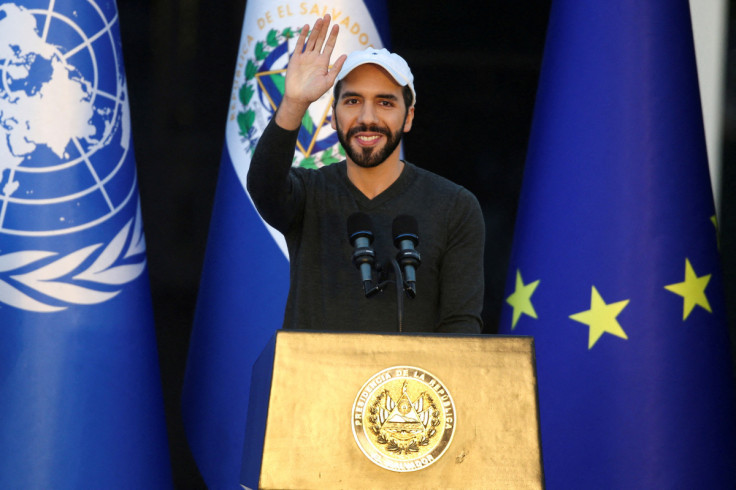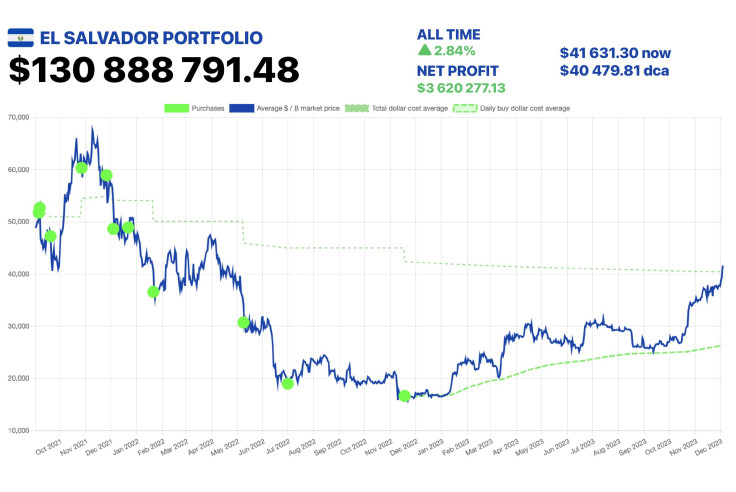
Nayib Bukele, reelected as president of El Salvador on Sunday, plans to sustain and expand his Bitcoin policy during his second term despite the controversy surrounding its actual impact on the country's economy, given its very low adoption.
Despite being legal tender for over two and a half years now, 88% of Salvadorans said they never used Bitcoin during 2023, according to a survey conducted by the Institute of Public Opinion (Iudop) at the Central American University (UCA).
El Salvador, which adopted the U.S. dollar as its official currency in 2001, drew attention from the financial market again in September 2021 when Bukele announced the adoption of Bitcoin as the country's second legal tender and purchases with state funds.
Never before had a country gone this far in expressing such confidence in the crypto ecosystem, investing public funds in the purchase of a decentralized and highly volatile currency.
According to the aforementioned survey by UCA, for 71% of Salvadorans, the economy has not improved since Bukele's Bitcoin policy: 52.9% said the economy remains the same, while 18.6% stated that it 'has worsened.
Additionally, according to the country's central bank, only 1% of the $4.71 billion in remittances sent from abroad reached the country through the government-created digital wallet 'Chivo Wallet.'
On Sunday, Bukele celebrated a triumphant victory, declaring himself the winner with an overwhelming 85% of the votes. Most political analysts attribute the popular vote to the population rewarding him for his relentless gang crackdown, which successfully transformed the country.

However, public opinion might now expect that Bukele's promises on Bitcoin adoption, his flagship in economic matters, materialize into concrete improvements for the population.
Seven out of ten people in El Salvador believe that the economy is the most serious issue currently facing the country, with only 4.4% mentioning problems related to insecurity, which topped the list in 2021, according to a survey by the consulting firm Fundaungo at the end of 2023.
In December, marking over two years since the adoption of Bitcoin, Bukele expressed optimism and said that El Salvador's Bitcoin investments were 'in the black,' coinciding with the asset reaching its highest price in a year and a half. This followed a significant decline from its peak of approximately $69,000 in November 2021 to less than $16,000 in November 2022.
Last week, the International Monetary Fund (IMF) recommended that El Salvador discontinue the use of bitcoin as legal tender, citing concerns about potential risks to the country's financial stability and consumer protection. However, Bukele's Vice President Felix Ulloa reaffirmed the nation's policy.
In an interview with Reuters, Ulloa said: "Not only will it be maintained, but at this moment, it enjoys the greatest credibility in the entire world." This statement referred to the recent announcement by the U.S. Securities and Exchange Commission (SEC) allowing U.S. Bitcoin spot exchange-traded funds (ETFs).
The opposition argues that Bukele's Bitcoin policy has not fulfilled the promise of attracting significant foreign investment flows that would contribute to an improvement in the quality of life for the population. Meanwhile, poverty levels increased by 3.8 percentage points in the last year. According to the Multiple Purposes Household Survey by the Central Reserve Bank (BCR), poverty stood at 26.6% of all Salvadoran families in 2022, compared to 24.6% in 2021.
© 2025 Latin Times. All rights reserved. Do not reproduce without permission.






